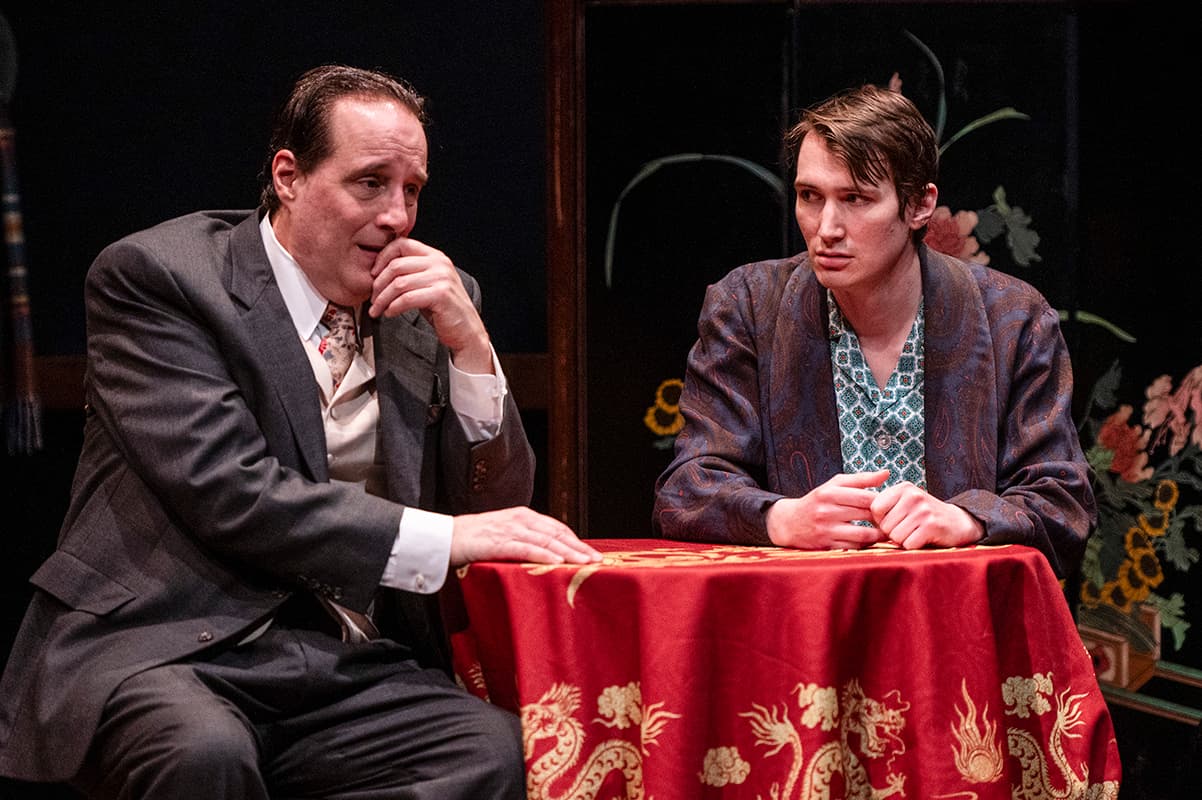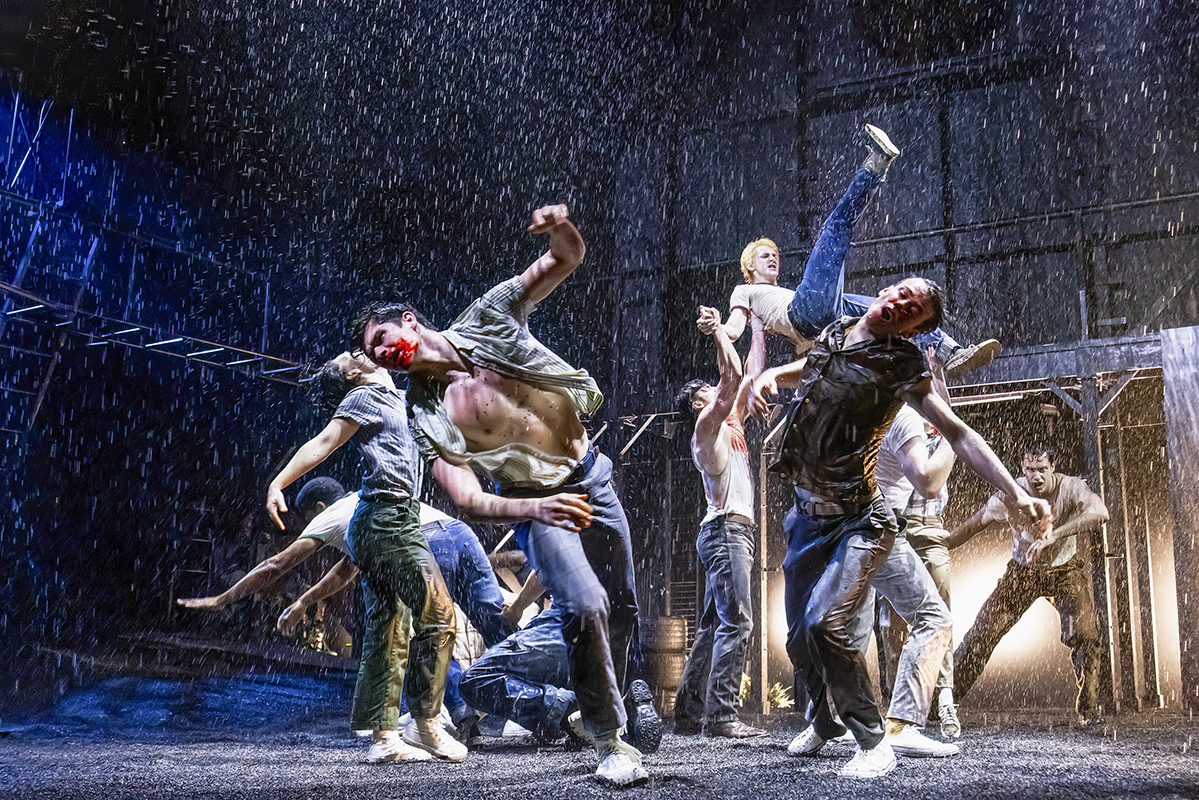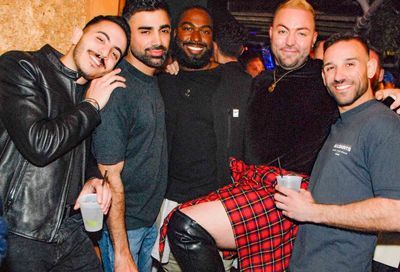‘The Celluloid Bordello’ Review: Hustlers & Harlots
'The Celluloid Bordello' shrewdly probes cinema portrayals of sex work via classic film clips and commentary from actual sex workers.

Filmmakers’ fascination with the world’s oldest profession dates back to the earliest days of cinema — as evidenced by the saucy silent-era film clips deployed in The Celluloid Bordello (★★★☆☆). The enlightening documentary from director Juliana Piccillo chooses wisely from a wealth of film and TV material, spanning over a hundred years, in compiling its compelling history of how sex work has been portrayed onscreen.
Piccillo, who has been a sex worker, journalist, university instructor, and author, previously created the autobiographical short I Was a Teenage Prostitute: Coming of Age in a Massage Parlor, and her informed, compassionate point of view comes through clearly in every aspect of The Celluloid Bordello.
In addition to having edited the film (formerly titled Whores on Film), Piccillo appears prominently among the interview subjects offering first-hand testimony as former or current sex workers. Underground artists and activists, including Annie Sprinkle, Scarlot Harlot, and Deep Dickollective’s Juba Kalamka share the impact and influence these films have had on how they view themselves and trading sex for money.
Sex work advocate and “first porn star to earn a Ph.D.,” Sprinkle, interviewed in front of what looks like a Zoom background, stands out as a warm, witty critic breaking down stereotypical cinema depictions of downtrodden women. The film follows through with a blunt montage of silver screen ladies of the evening being shot, run over, beaten, and brutalized. “People want to watch us die,” opines artist and acrobat Nat.
By contrast, Sprinkle brightly names beloved 1962 musical Gypsy as the film that inspired her eager swing towards a life in burlesque. Her favorite number, of course, is “You Gotta Have a Gimmick,” Jules Styne and Stephen Sondheim’s tongue-in-cheek guide to getting ahead in the bump and grind of the Life.
Whatever funds and resources didn’t go to snappy-looking interview setups for Bordello must have gone to the primo clip collection, since Gypsy and the dozens of other classic films discussed are well-represented with excerpts onscreen. The pace of memorable movie moments is brisk, and the myriad scenes well-placed to illustrate the subjects’ nuanced analyses.

Sex work pioneer Harlot, for example, confesses she saw strength in Shirley MacLaine’s starry-eyed taxi dancer in Sweet Charity, despite the character’s raw vulnerability and horrendously bad choices. Extended scenes of MacLaine and company singing and dancing through Fosse’s fantastic film do convey the glamour and allure that might have inspired many a young performer, as well as the pain and disappointment these movies promise should await those who dance over the edge.
When it comes to portrayals of male hustlers, according to several who are interviewed in the film, disappointment awaits every man. From Midnight Cowboy to My Own Private Idaho and Mysterious Skin, movies always depict that men in the trade must be driven by trauma, says performer and revolutionary Gabe Vigil. But bisexual art activist Kalamka, who co-founded the hip-hop group Deep Dickollective, declares he got into sex work as an extension of his art, an exploration of porn performance, and, because it got him off, a rather refreshing admission.
The interviewees are candid and entertaining — though some are allowed to ramble at times, their narration unembellished by Ethan Leinwand’s slinky piano blues score. Still, building a documentary exploration of sex work in the cinema around the deeply felt confessions of actual sex workers is a great gimmick, since you gotta have one.
Piccillo and her subjects provide the film’s unique point of view, as well as sharp insight into why audiences, artists, and especially actors can’t get enough of stories about hookers and hustlers. An amusing sequence showing a parade of stars accepting Oscars for playing pros really drives home the point that there’s been a special place throughout cinema history for guys and dolls who turn tricks.
The Celluloid Bordello is available on DVD and on most streaming platforms, including Amazon, Apple TV, and iTunes. Visit www.whoresonfilm.com or www.firstrunfeatures.com.
Support Metro Weekly’s Journalism
These are challenging times for news organizations. And yet it’s crucial we stay active and provide vital resources and information to both our local readers and the world. So won’t you please take a moment and consider supporting Metro Weekly with a membership? For as little as $5 a month, you can help ensure Metro Weekly magazine and MetroWeekly.com remain free, viable resources as we provide the best, most diverse, culturally-resonant LGBTQ coverage in both the D.C. region and around the world. Memberships come with exclusive perks and discounts, your own personal digital delivery of each week’s magazine (and an archive), access to our Member's Lounge when it launches this fall, and exclusive members-only items like Metro Weekly Membership Mugs and Tote Bags! Check out all our membership levels here and please join us today!






















